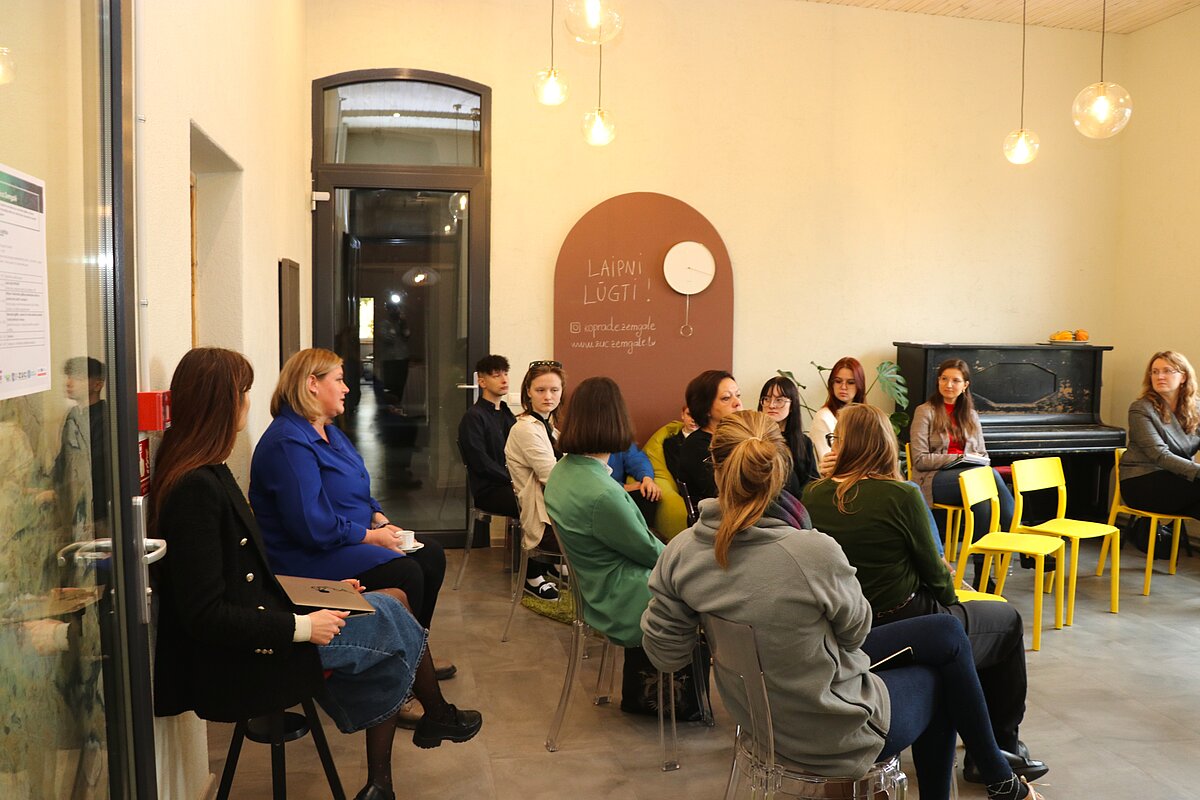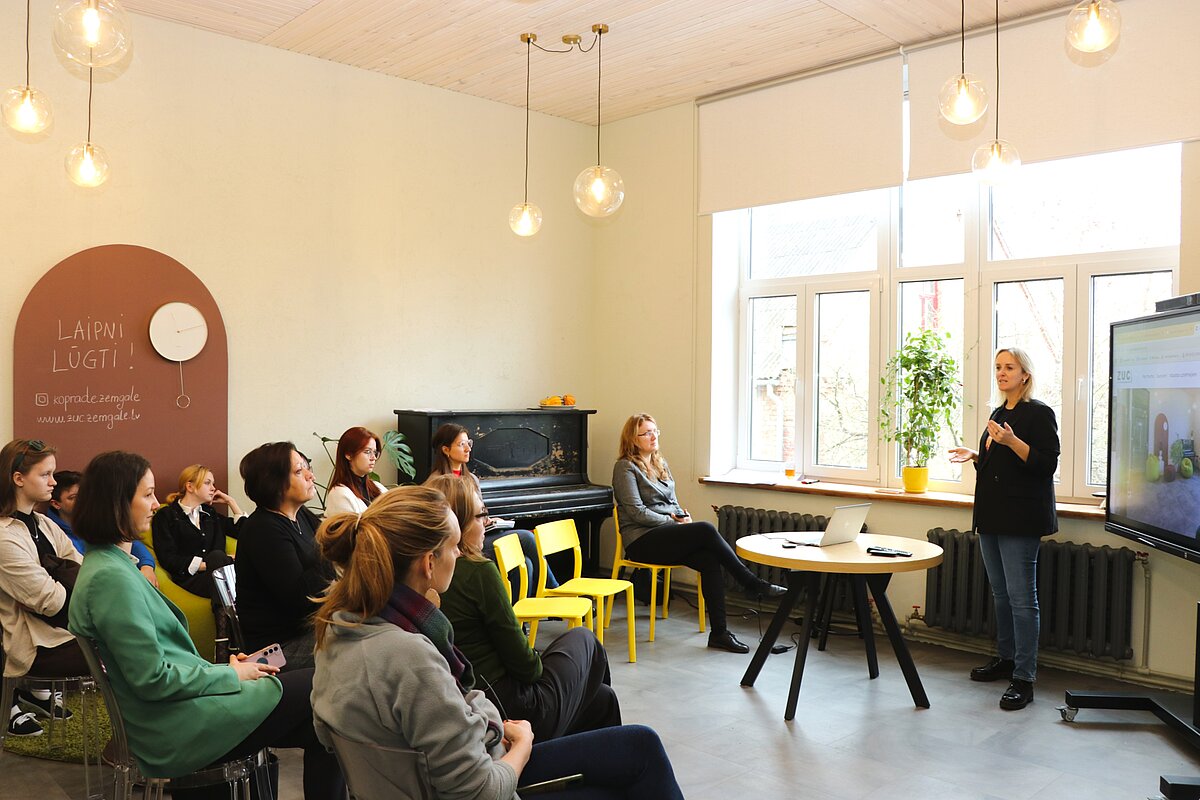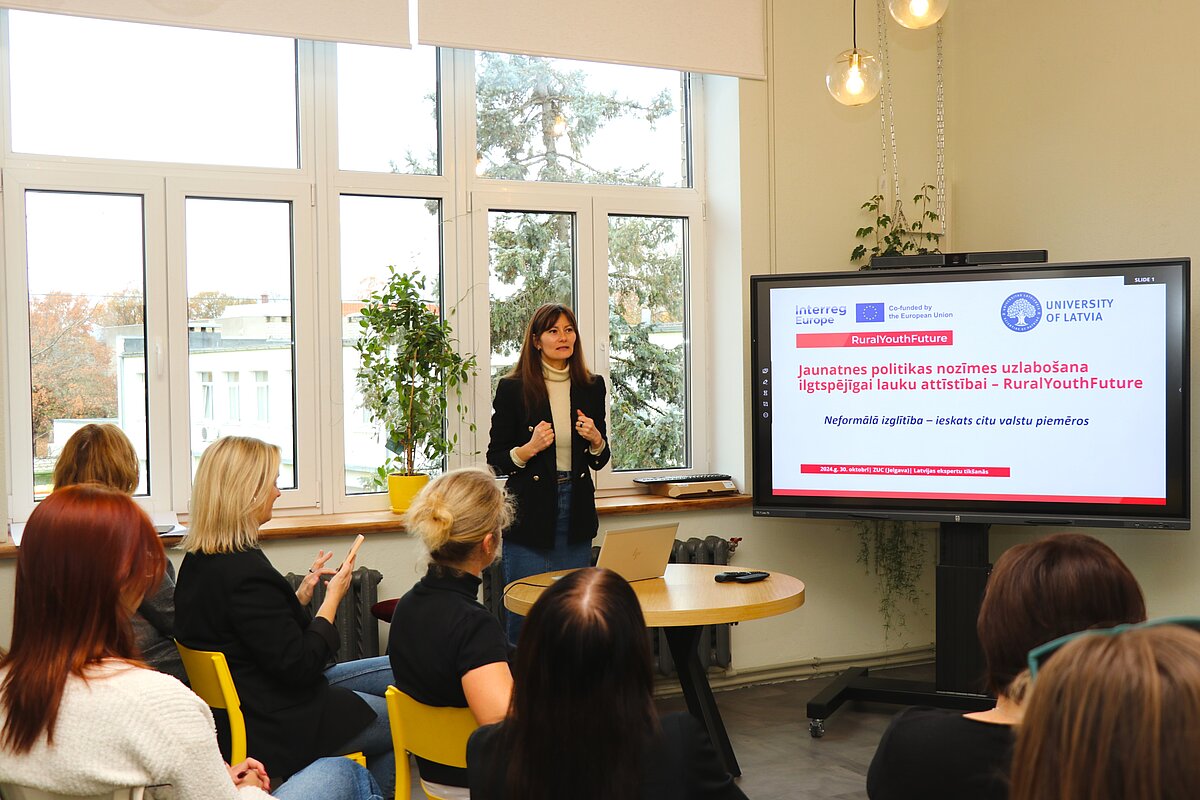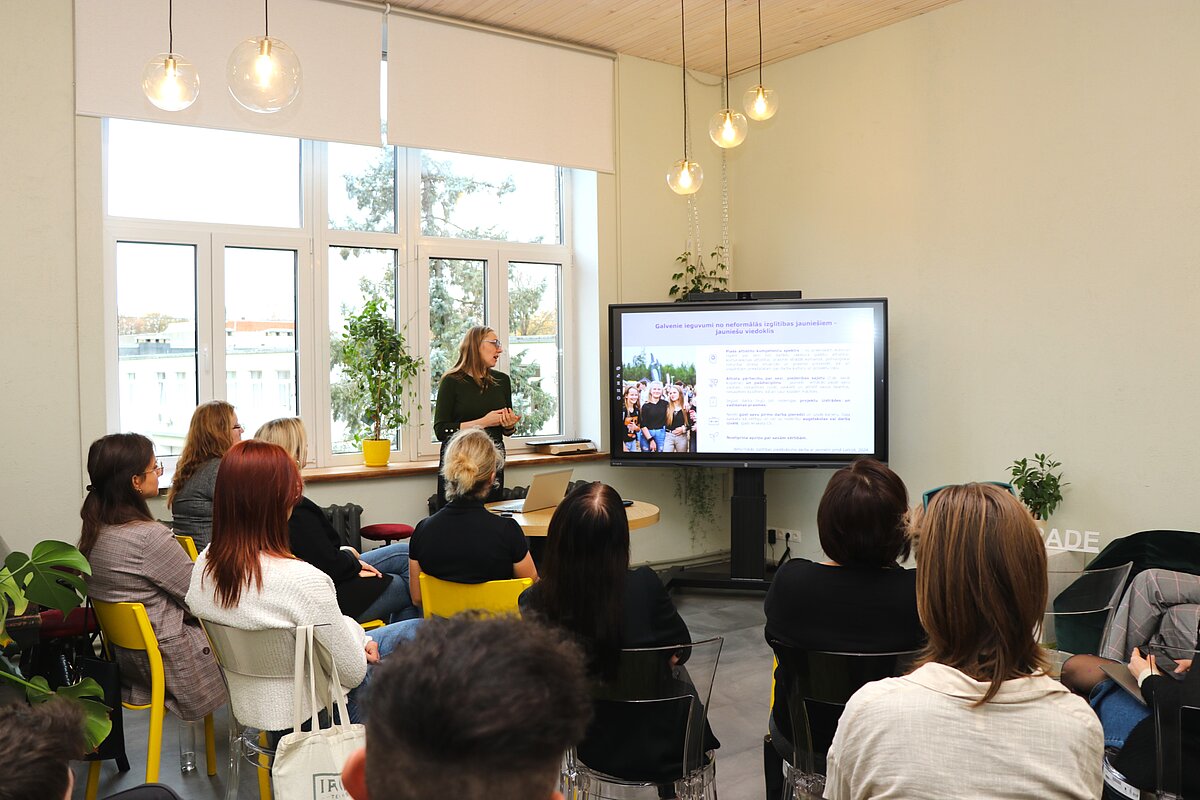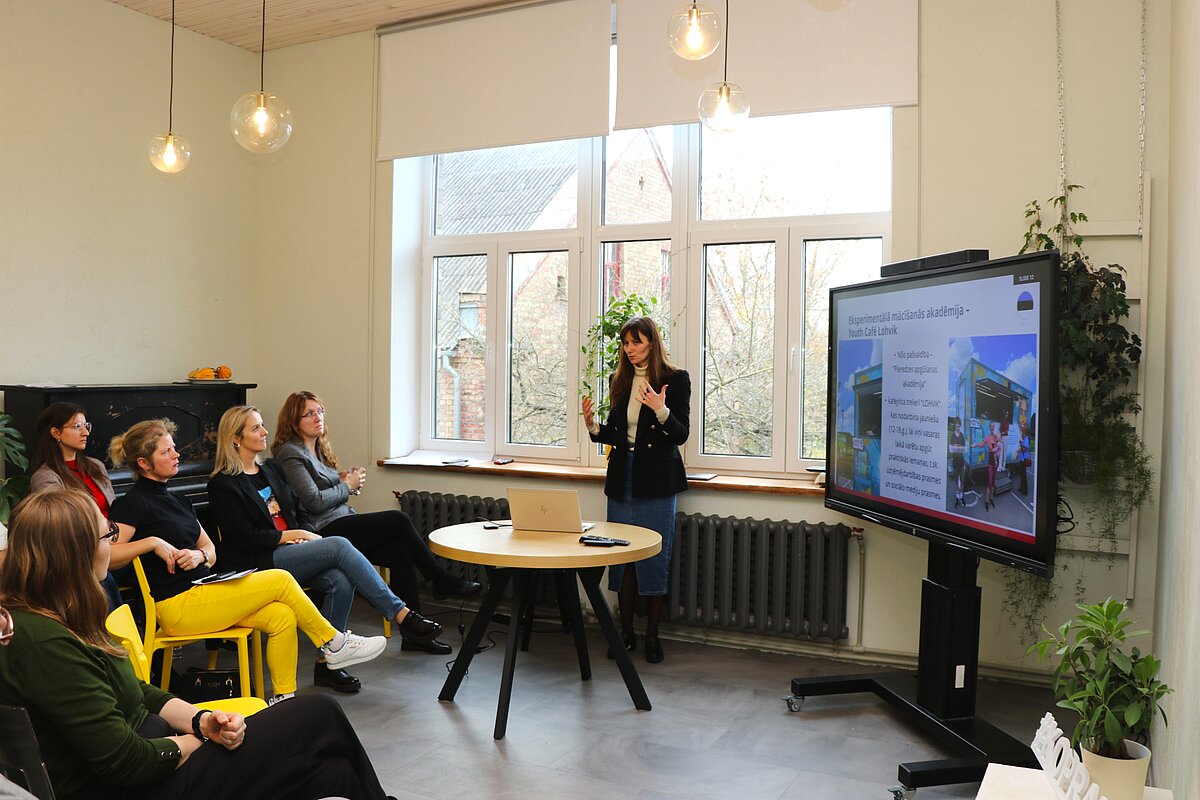
The workshop aimed to raise employers' awareness of the importance of NFE in youth everyday learning and volunteering, helping them acquire skills and competences needed in the labour market. Promoting awareness of NFE is also a key task outlined in the National Youth Policy Programme 2025–2026, which serves as an action plan to achieve the goals set in the Children, Youth, and Family Development Guidelines for 2022–2027.
Experts from the MoES, associate partners in the RuralYouthFuture project, presented findings and recommendations from the study "Non-formal Education Offer in the Field of Youth Work in Latvia" (“Neformālās izglītības piedāvājums darba ar jaunatni jomā Latvijā”). Published in the summer of 2024, this study is the first comprehensive analysis of NFE in Latvia. According to the survey data, in 2023, 13% of young people under the age of 25 participated in NFE activities, with the highest participation rate among high school-aged youth (5,3%). However, many young people lack clarity on what NFI is and how to recognise it various forms, making it difficult for them to acknowledge their involvement in such activities.
In order to learn from examples in other countries, the Interreg Europe project RuralYouthFuture and sucessfully implemented initiatives from its participating countries were presented, along with discussions on their potential application in Latvia. Participants learned about the Young Creators volunteer programme in Elva municipality (Estonia); the Tartu Extended 2024 youth development programme – implemented as part of the Tartu European Capital of Culture 2024; the Experimental Learning Academy a youth summer café, LOHVIK, in Nõo Municipality (Estonia); the Slovenian Rural Youth Association, and other good practices.
These examples highlight that access to NFE is a key factor in retaining young people in less populated regions and fostering the development of their digital and other competencies.
During the workshop, participants discussed several critical questions:
- How do local institutions and companies assess young people's NFE experience
- What kind of support do employers need to consider NFE as a first work experience?
- What messages should be given to NFE providers to ensure that the competences acquired are relevant to labour market needs?
- How to develop a more diverse and labour market relevant NFE offer for young people?
The discussions confirmed that non-formal education is an essential tool for developing youth skills. Through volunteering, project writing, and other NFE activities, young people gain valuable transversal skills, such as communication and collaboration with diverse groups of people. These experience also fosters self-confidence, discipline, and personal growth. However, both young people and employers often underestimate the significance of these experiences. Yet, NFE frequently serves as the first step towards practical experience in the labor market or a specific industry.
The participants stressed the importance of closer cooperation between NFE providers and employers. Additionally, success stories should be publicly highlighted, and more attractive NFE programmes should be developed by tailoring topics and content to both young people's interests and employers' needs.
It was also noted that access to NFE often poses challenges for young people living far from municipal centres. While urban centres have a broad range of NFE opportunities, youth living in remote locations often face barriers to participation due to financial constraints, transportation difficulties, and time limitations.
The event took place at the Zemgale Entrepreneurship Center co-working space, which plays an important role in engaging and activating local youth by providing opportunities to develop entrepreneurial and job-related skills. Participants also took an opportunity and discussed potential models for co-working spaces sustainability. D.Ponomarjova shared examples of coworking models in other countries – Kupland (Estonia) and The Remote Lab (Sweden), which were learned during the Interreg Europe PLP matchmaking session on coworking in rural areas that took place in Burgos.
More about the RuralYouthFuture project:
Denize Ponomarjova, ESASAC Project Manager, LU: denize.ponomarjova@lu.lv
Website: https://www.interregeurope.eu/ruralyouthfuture
Project page on the LU website: https://www.lu.lv/cets/research/euproject/rural-youth-future/
Project page on LinkedIn: https://www.linkedin.com/company/rural-youth-future/
Project page on Facebook: https://www.facebook.com/ruralyouthfutureproject/

 CONFERENCE
CONFERENCE